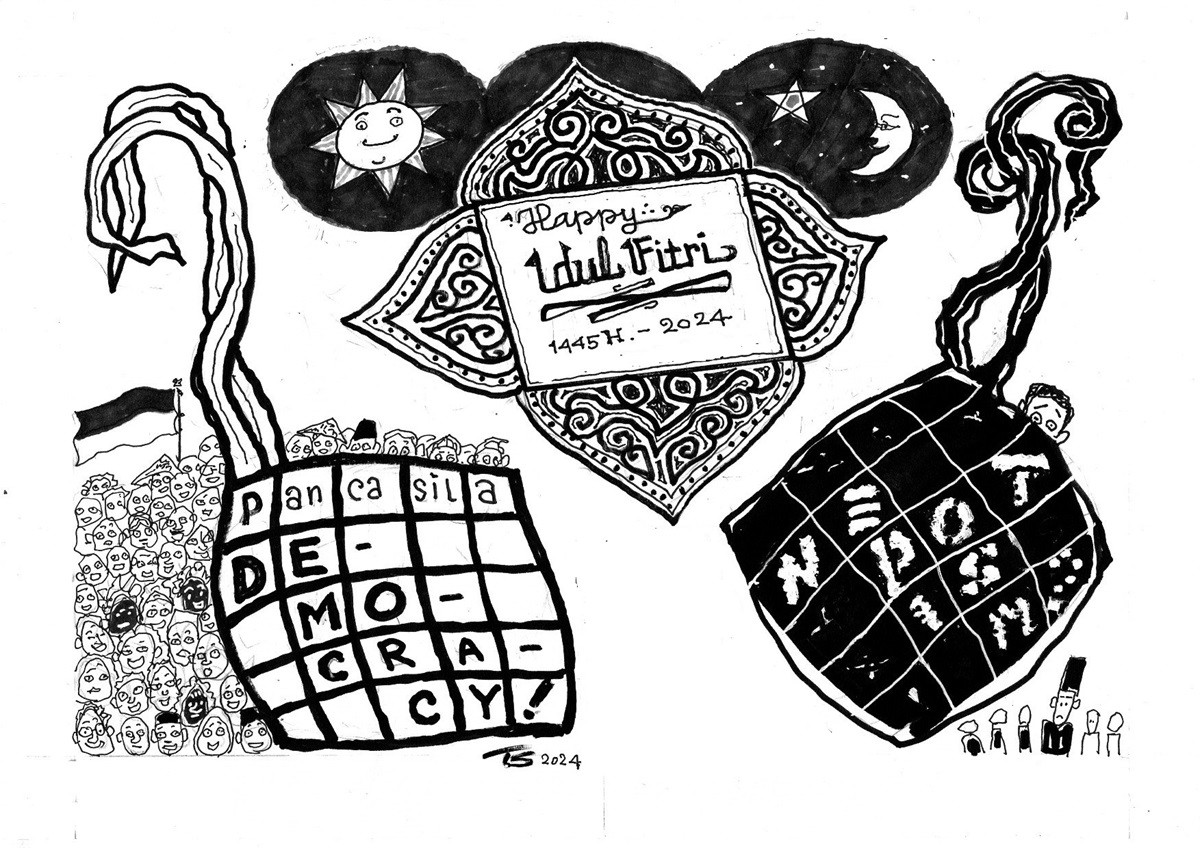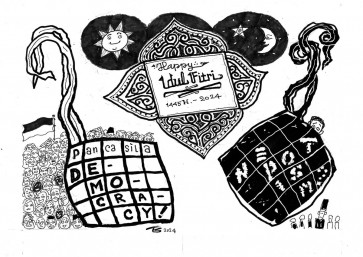Popular Reads
Top Results
Can't find what you're looking for?
View all search resultsPopular Reads
Top Results
Can't find what you're looking for?
View all search resultsFrom fasting to feasting: Idul Fitri reveals gap between center and regions
The materialistic, consumerist "feasting" that the Idul Fitri celebration has devolved into has its roots in a "tradition" that dates back to a time before the republic existed, and points to the prevalence of the inequality that has existed between Java and non-Java regions, cities and villages.
Change text size
Gift Premium Articles
to Anyone
I
n Islam, the holy month of Ramadan is a moment not only to practice self-restraint, but also to instill the values of simplicity and moderation when fasting, followed by a day of feasting on Idul Fitri. However, these spiritual values are not fully actualized in the social reality of Indonesian society.
Even though Ramadan this year started with public complaints about the high prices of rice and other necessities, this did not dampen the typical lifestyle of Indonesian Muslims during the fasting month.
Every afternoon before breaking the fast, people thronged takjil (breaking-of-the-fast snack) markets. This year, the habit gained fame on social media through “the takjil war”, in which Muslims had to “fight” non-Muslims for food and drinks.
In the middle of Ramadan, breaking-of-the-fast gatherings at restaurants or shopping malls are commonplace. Toward the end of Ramadan, television commercials for food products, drinks, clothing, sarongs and even vehicles do not fail to wrap themselves in the Idul Fitri atmosphere, tempting people into the trap of consumerism. You can be sure that markets and shopping centers will be crowded especially after workers have received their holiday bonuses (THR).
This is the face of consumerism disguised in religion that proves the spirit of capitalism in religious ethics, as in the theory of Max Weber (1905).
The consumerist behavior of society during the holy month of Ramadan and Idul Fitri is a derivative of the influence of old traditions. For example, the atmosphere of Idul Fitri during colonial times was described by Achmad Djajadiningrat, a regent of Serang, Banten.
In his memoir Herinneringen van Pangeran Aria Achmad Djajadiningrat (Memories of Prince Aria Achmad Djajadiningrat, 1934) he recounted childhood memories of his mother's busy activities leading up to the Islamic holiday. Apart from preparing various cakes to send to the homes of native officials, his mother prepared his father's best clothes for the Idul Fitri celebrations.



















